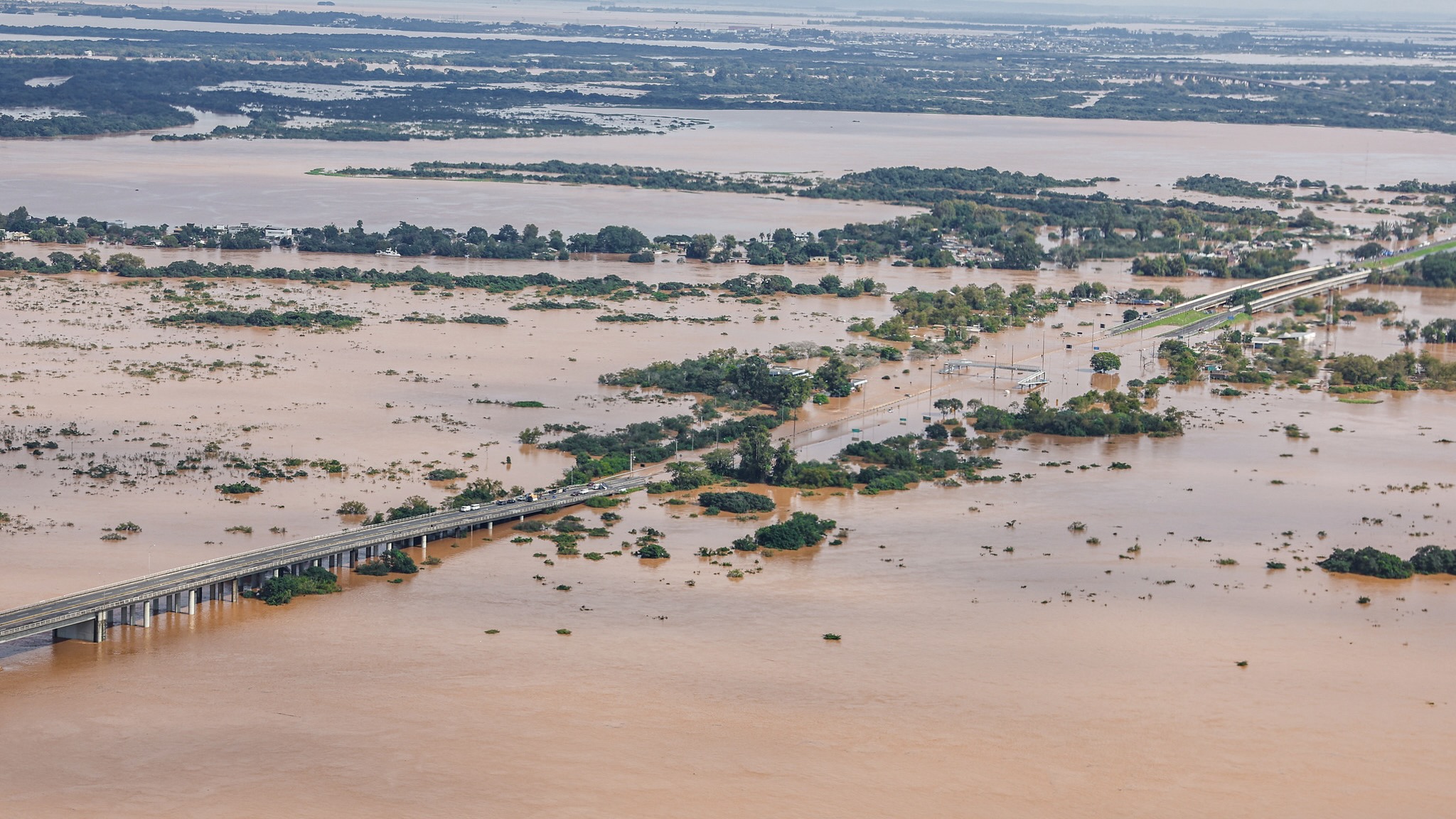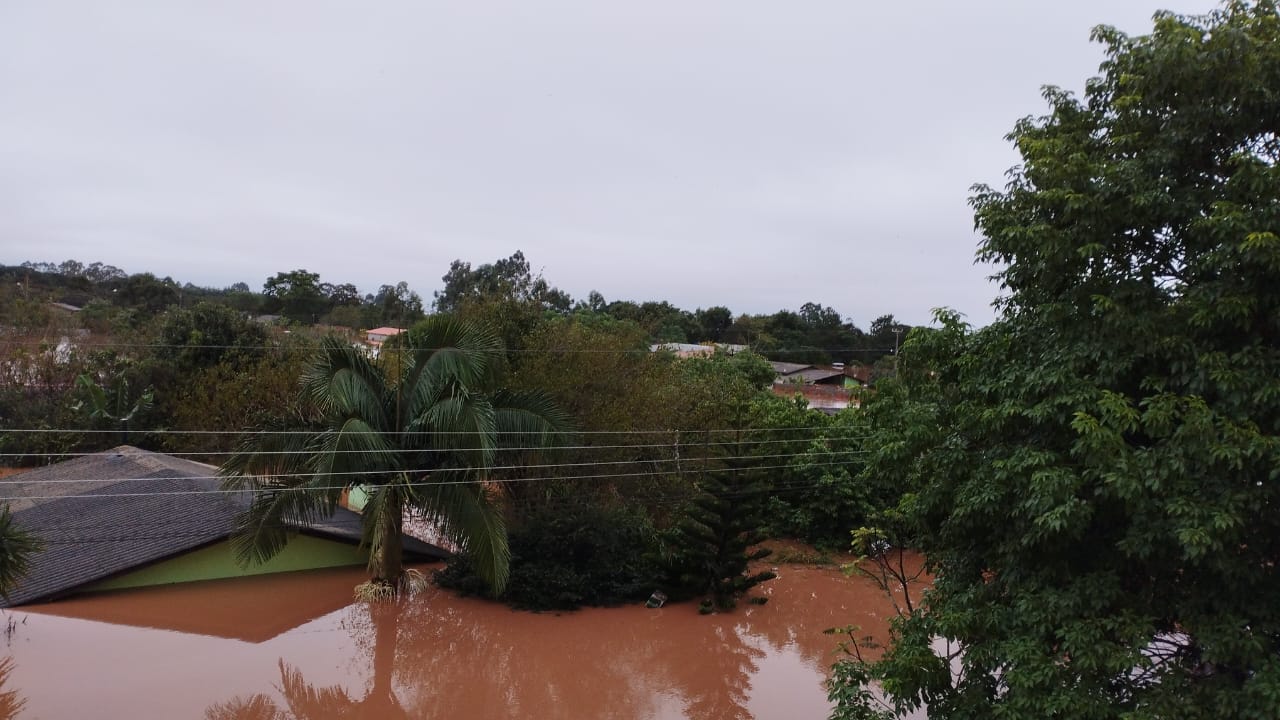Carlos Tautz
 Flooding in Rio Grande do Sul. Photo: Ricardo Stuckert
Flooding in Rio Grande do Sul. Photo: Ricardo Stuckert
Nearly 100 people have died and more than 200,000 have been left homeless since April 29, when heavy rains that have already accumulated an incredible 800 mm – the equivalent of 800 liters of water per square meter – fell on Rio Grande do Sul, the southernmost state in Brazil, which is the size of Italy, borders Argentina, and is almost at the tip of South America.
But new storm forecasts, updated several times a day by Brazil’s National Meteorological Institute, were causing even more anxiety and despair among regional authorities and population. Unable to cope with the chaos that has ensued, authorities have had to call for help from the army and various other agencies of the Brazilian national government. The heavy rains have also increased the number of missing people (about 200), as well as another 200 children who have been involuntarily separated from their parents.

Flooding at an MST settlement. Photo: MST
Thousands of volunteers helped the nearly 800,000 people who have been affected in some way by the storms, without the official civil defense system of Rio Grande do Sul being able to assist the people who have been isolated on the roofs of their own homes in a predictable tragedy. Last year, this civil defense system had an annual budget of less than $10,000, or 10 cents per inhabitant.
On Monday, a red alert was issued for more heavy rains in some areas of the state, which has a population of 11.2 million, about a million more than the United Arab Emirates.
Roads and highways in the state have been closed due to river flooding, dam breaches, or precautionary measures taken by authorities.
Perfect storm: Climate change, hurricanes and the end of environmental protection
Critics of the state government say that in the last 20 years, Rio Grande do Sul, a state that has seen consecutive record temperatures every month since April, has been experiencing a “perfect storm”.
According to environmentalists, university researchers and official experts who have denounced the policies of Governor Eduardo Leite, Rio Grande do Sul is experiencing a combination of a change in rainfall patterns due to the intense use of land for agriculture to export agricultural products, and the appearance of hurricanes caused by rising global temperatures.
Until 2004, typhoons were unheard of in the South Atlantic. The first one even prompted Al Gore, former vice president of the United States, to produce the 2006 documentary “An Inconvenient Truth” about the myths and misconceptions surrounding global warming.
But since taking office, Leite has repeated the radical strategy of selling off and closing down public companies that carried out environmental planning and control in various areas, especially in the fields of hydroelectric power generation, sanitation, and the management and distribution of water resources.
During this period, the governor – a young 39-year-old neoliberal lawyer who has been in office since 2019 and will stay until 2026 – believes in the minimal state. Through his proposal to the regional parliament, 480 points of the state’s environmental legislation have been amended to relax requirements and favor developers, even allowing them to apply for environmental self-licensing.
“The government and the regional parliament have made the state, the pioneer of the environmental struggle in Brazil, swim in favor of the climate crisis”, explained biologist Francisco Milanez, president of the oldest environmental organization in Brazil. “To understand the dramatic situation, we must add the extinction of the foundations for botanical research, statistics and human resources training, the agency for ports and waterways, as well as the destruction of the first environmental law in the Southern Hemisphere on pesticides, because it included a ban on the use of pesticides not approved in the countries of origin”, Milanez recalled.
“The law now allows the use of herbicides that destroy plant life. Now we have unprotected hillsides that don’t allow groundwater to recharge. The result is that even if we have less rainfall, we will have more intense flooding. Not to mention allowing the mining and use of coal”, he says.
“This policy, the tip of the iceberg of which is the lack of maintenance of the environmental protection system in the metropolitan region of Porto Alegre, is aimed at opening up urban land to real estate speculation. This is a deliberate policy of unscrupulous neoliberalism, of throwing the city into the arms of privatization. During the tragedy, we found sluice gates that didn’t work, dams that broke without maintenance, water pumps that didn’t work. This equipment deteriorated and created chaos”, said Professor Menegati.
MST Brazil: “The Crisis is Not Just about Food or Climate. It’s a Civilizational Crisis”